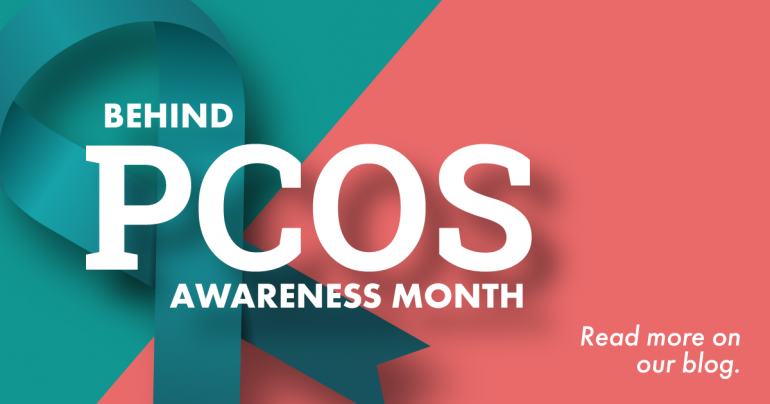September is Polycystic Ovary Syndrome Awareness month, a federally designated event designed to educate and increase awareness about the disease. Those that suffer from PCOS can receive information on symptom relief and prevention of secondary conditions such as diabetes, cardiovascular disease, and cancer.
Causes and Symptoms
Polycystic Ovary Syndrome, or PCOS, is a hormonal disorder that may affect many areas of the body These include Insulin resistance, increased androgen (male) hormone levels, and irregular menstrual cycles. PCOS is the leading cause of infertility in women and affects approximately 1 in every 10 women. Although the cause of PCOS is unknown, there are common symptoms associated with the condition.
- Irregular Menstrual Cycles – Periods can be absent, unpredictable, infrequent, and heavy.
- Infertility – PCOS is the most common cause of female infertility.
- Obesity – Approximately 80% of women with PCOS are obese.
- Hirsutism (Excessive Hair Growth) – More than 70% of women with PCOS have excessive hair on their face, chest, abdomen, and/or upper thighs.
- Acne – Women with PCOS do not respond well to typical treatments.
- Polycystic Ovaries – Not every woman with PCOS has multiple small cysts of the ovaries on Ultrasound
Why You Should Act Now
Having PCOS increases the risk of developing severe, lifelong diseases. Insulin resistance increases your risk for cardiovascular disease, diabetes, and metabolic syndrome. Endometrial hyperplasia is a condition that makes the lining of the uterus too thick, raising the risk for endometrial cancer.
Getting involved in PCOS events can educate others and increase awareness about the condition. During September, you can take part in one of the many conferences, walks, and month-long events. Night of Teal is a nationwide lighting event in which buildings and monuments across the U.S. are illuminated in the color teal. Hashtags or images in the awareness toolkit can also be utilized on social media outlets.
Clinical Research and PCOS

There are several options currently available to help treat PCOS. They include combined hormonal birth control, insulin-sensitizing medications, weight loss, and medications that help increase ovulation. However, some women are not able to take some of these therapies, and adequate treatment remains out of reach for many. Researchers are dedicated to advancing medicine and finding alternative treatment options for women with PCOS.
Clinical research cannot be possible without volunteers like you. When you volunteer for research, you not only take control of your health, you become more familiar with your condition.
If you have symptoms of or have been diagnosed with PCOS, talk to our staff about enrolling in our PCOS study. Qualified participants may receive study-related medication and care by a board-certified gynecologist. Reimbursement is also available for time and travel. To read more about our study, visit us online, or call us at (206) 522-3330 extension 2.
References:
https://www.acog.org/Patients/FAQs/Polycystic-Ovary-Syndrome-PCOS?IsMobileSet=false
https://pcoschallenge.org/pcos-awareness-month/

